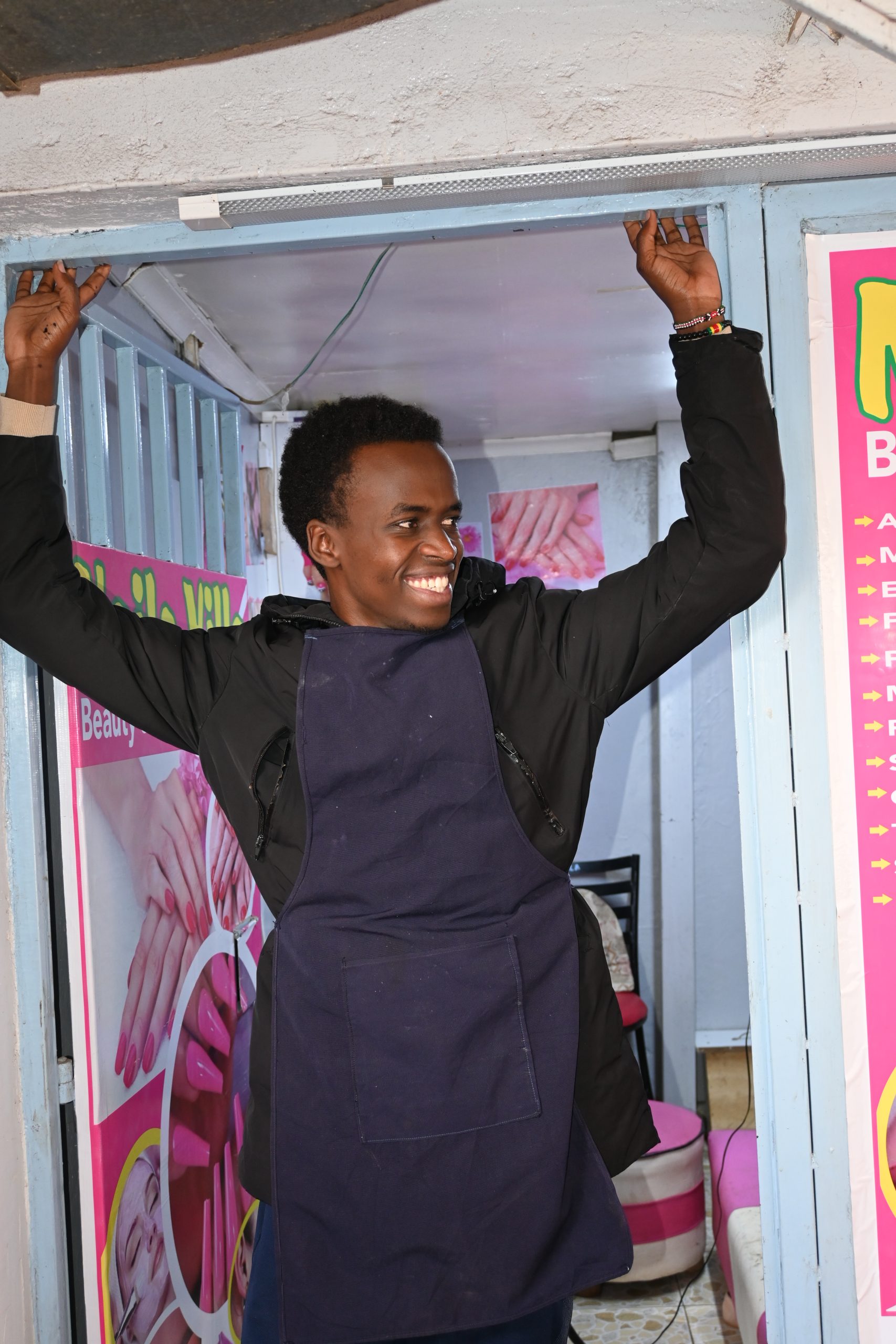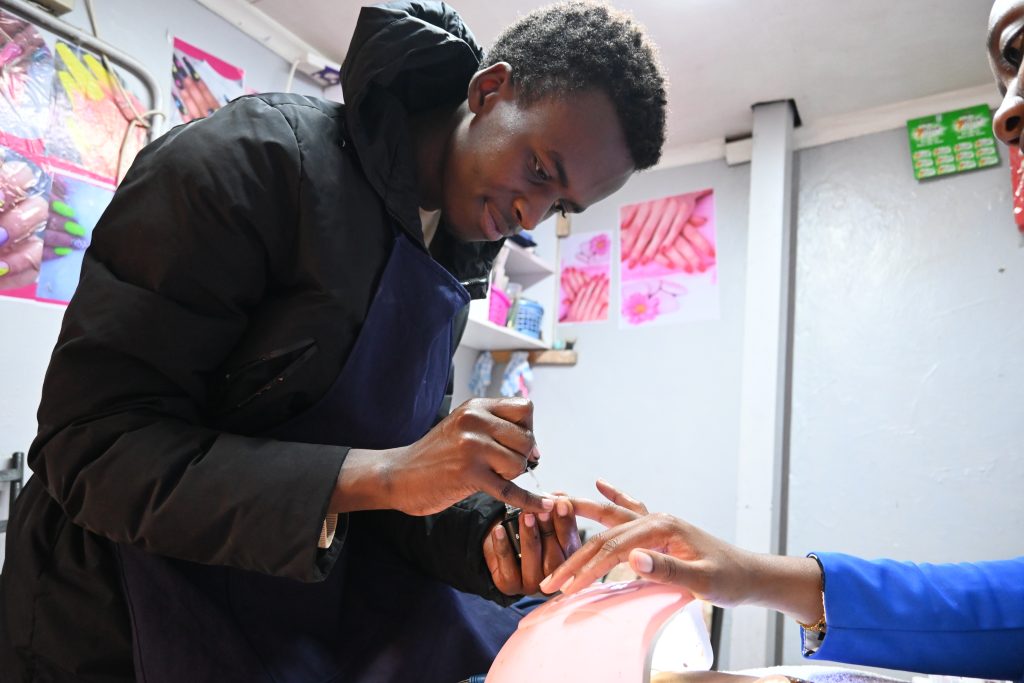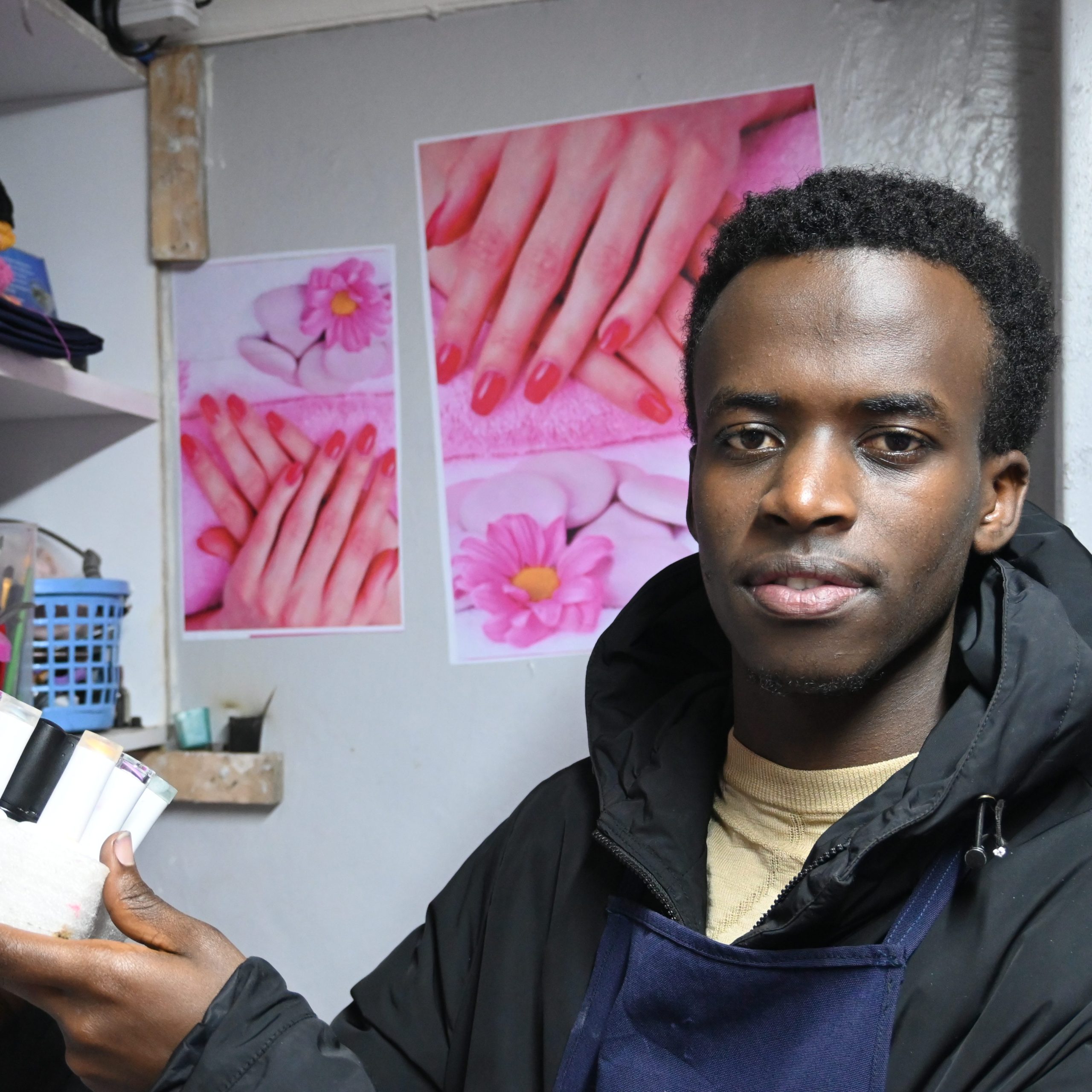Kenya hosts the third largest refugee population in Africa. As of September 2023, the total number of registered refugees and asylum seekers in Kenya stood at 654,114 while those in Nairobi are 97,400 according to UNHCR. These individuals have sought refuge to escape conflict, persecution, and poverty in their home countries.
Refugees encounter significant obstacles that encompass limited availability of fundamental services such as healthcare, education, discrimination, and a scarcity of livelihood opportunities.
In Nairobi, the Inuka project, funded by FOSIT and implemented by AVSI in partnership with AVAID, played a vital role in empowering urban refugees and their host communities. This initiative focused on providing training in financial literacy, business skills, work readiness, and income-generating activities.
The primary aim of the Inuka project was to enhance the self-reliance of youth in various Nairobi locations, including Eastleigh, Kasarani, Kawangware, Githurai, Kayole, and Kariokor. It achieved this by enhancing access to livelihood opportunities and financial services through a holistic approach encompassing financial literacy training and support for business development. This endeavour enabled refugees to establish and nurture their businesses, ultimately fostering financial self-sufficiency.
Seeking refuge in Kenya
Fred, a 23-year-old, encountered AVSI in 2020 through the IDEA project that aimed to promote the Inclusion of unemployed migrants and vulnerable youth.
When he was just 14 years old, Fred and his family sought refuge in Kenya from the civil wars in the Democratic Republic of Congo, their home country. Settling in Kasarani, Nairobi, Fred's mother took on casual work to make ends meet. Despite facing numerous challenges such as a lack of proper documentation for job opportunities, and unreliable income channels to pay school fees, she managed to enrol Fred in school, enabling him to complete his primary education. However, the financial constraints forced Fred to drop out of high school during his final year. The mother's role as the sole breadwinner with the dual challenge of meeting basic household needs and funding Fred's education became untenable.
The holistic approach
With the support of the IDEA project, Fred attended St. Kizito Vocational Training Institute for an 8-month course on Beauty Therapy. This was a great step since he then owned a particular skill that he could use to earn an income. His mother also benefited from adult literacy skills by attending english lessons that helped improve her ability to negotiate the business and social environment effectively.
Even with the necessary skills, refugees still face exploitation, loss of social identity, and lack of opportunity and hence it is difficult for them to even kick off simple businesses that are handy.
To ensure that the knowledge that had been transferred was fostered, AVSI, with the support of AVAID introduced the Inuka project as a last-mile initiative for the IDEA project. Its aim was to contribute to enhanced self-reliance among urban youth in Nairobi by offering selected skilled youth financial start-up capital for micro-enterprises as well as conduct job orientation, business incubation and follow-ups.
Fred experienced a transformative turning point in his life upon becoming a participant in the Inuka project. Together with 44 other youths, Fred was accompanied by dedicated Educators who provided essential training in securing the necessary licenses for diverse business operations, fostering the ability to recognize promising business concepts, and drafting comprehensive business plans. Additionally, participants received instruction in financial literacy and start-up kits. Having previously completed an eight-month course in Beauty Therapy, Fred’s journey with the Inuka project involved additional life skills training, including customer relations, problem-solving, adaptability, networking, and time management.

A beauty parlour blossoms in Kasarani
Fred was fortunate enough to secure a job during his training course, to which he became attached, and he remained employed there for a year. He utilized the financial skills gained and saved up to Ksh. 47,000 (315 euros) which he used as capital to start his small beauty parlour located in Kasarani, Nairobi. At the parlour, he offers manicure, pedicure and make-up services from which he earns income to fend for his family. Fred, was provided with a start-up kit to begin his business in Beauty Therapy which compounded the effectiveness of his business. The kit entailed a nail drill, gel polish, powder, cleansers and disinfectants, cotton pads, professional make-up brushes, and an eyebrows kit.
The skills I gained from the Inuka project inspired me to actively seek employment, enabling me to save money and ultimately establish my beauty salon.
Fred, beneficiary of Inuka project

In addition, Fred actively participates in two savings initiatives. One involves a 10-member savings group where each member makes weekly contributions of Ksh 100, and the accumulated total is disbursed at the end of the year. The other is the "Mshwari" a digital savings platform, through which he regularly saves Ksh. 300 every week.
“Over the next two years, my primary goal is to secure a more spacious location for my business. This will enable me to cater to a larger clientele and in the process, offer employment opportunities to the youth in my community. I’m committed to mentoring them, emphasizing the importance of pursuing careers aligned with their passions. Through hard work and dedication, they will undoubtedly reap the rewards of their efforts,” Fred comments with a beam on his face.
The Inuka project: fostering integration and social cohesion
The Inuka Project, spanning from September 2021 to August 2022, was a one-year initiative designed to enhance self-reliance among urban youth in Nairobi, specifically targeting areas such as Eastleigh, Kasarani, Kawangware, Githurai, Kayole, and Kariokor. Its primary objective was to address youth unemployment, especially among vulnerable groups like refugees, girls, and youth in destitute urban areas. The project aimed to provide start-up kits and financial support to empower them to initiate income-generating activities during periods of crisis and recession.
Additionally, the project fostered increased integration and social cohesion among refugees and host communities through community dialogues in most of the areas hosting refugees. Community dialogues served as a platform to exchange ideas and discuss emerging issues such as security, business and education ultimately fostering stronger relationships and reducing tensions between refugees and the Kenyan host communities.
The Inuka project was implemented by AVSI and AVAID, thanks to the funds from FOSIT.

